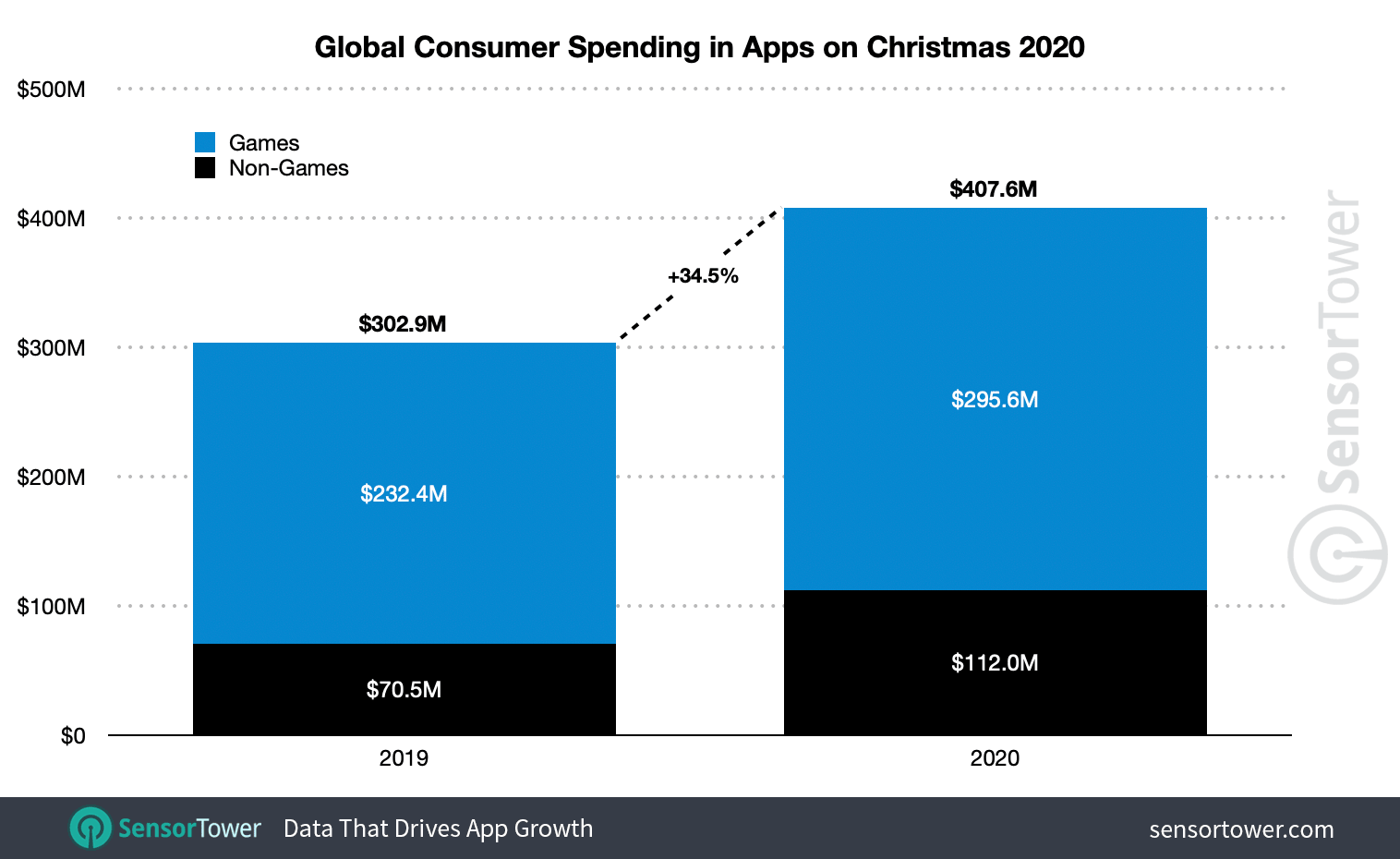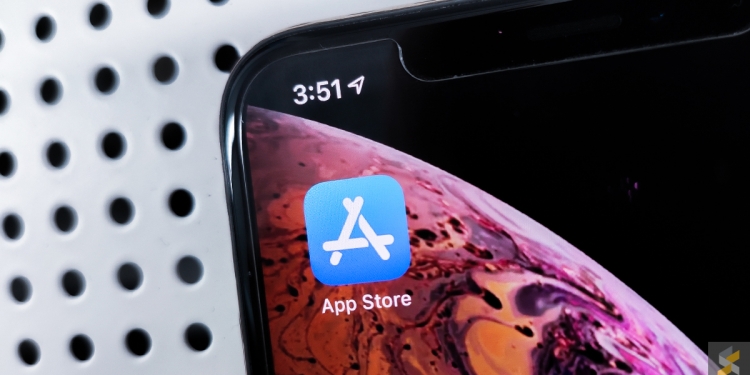2020 marks a year where people had to rely more on digital content and applications rather than physical contact. Worldwide spending on both Apple’s App Store and Google Play passed USD 100 billion (RM403 billion) in a single year for the first time ever in November.
Between 1 to 27 December, mobile spending on Christmas reached USD 9 billion (RM36 billion). During the Christmas day alone, consumers around the globe spent an estimated USD 407.6 million (RM1.6 billion) across both mobile apps. Christmas also saw a record-setting amount spent the App Store seeing a 35.2% rise over 2019.
Christmas also saw a record-setting amount spent the App Store seeing a 35.2% rise over 2019. Between it and Google Play, it dominated with 68.4% of the spending (USD 278.6 million, or RM1.1 billion). Google Play on the other hand saw USD 129 million (RM520 million) in revenue.
What did consumers spend on this Christmas?

The majority of what consumers spent during the holidays (mobile) were games—just like what happened last year. But the stark difference is that 2020 saw a 34.5% increase in sales, from approximately USD 303 million (RM1.2 billion) in 2019.
The category’s leader was Tencent’s Honor of Kings—a multiplayer online battle game. It saw about USD 10.7 million (RM43.2 million) in consumer spending, up a whopping 205.7% from USD 3.5 million (RM14.3 million) in 2019.
Consumers in 2020 also spent USD 112 million (RM452 million) on non-game apps on Christmas alone. It was up 59% from USD 70.5 million (RM284 million) in 2019.
The sub-category that generated the most revenue in the non-games category on both Apple’s App Store and Google’s platform was Entertainment. Globally, TikTok was the top app, generating USD 4.7 million (RM18.9 million) in revenue on Christmas. In just the U.S., however, Disney+ was the top earner with USD 2.6 million (RM10.5 million).
In November, Apple cut the App Store’s commission rate to 15% with the Small Business Program. The halved commission rate was introduced earlier than expected after Apple found itself the target of two European Union (EU) anti-trust investigations.








